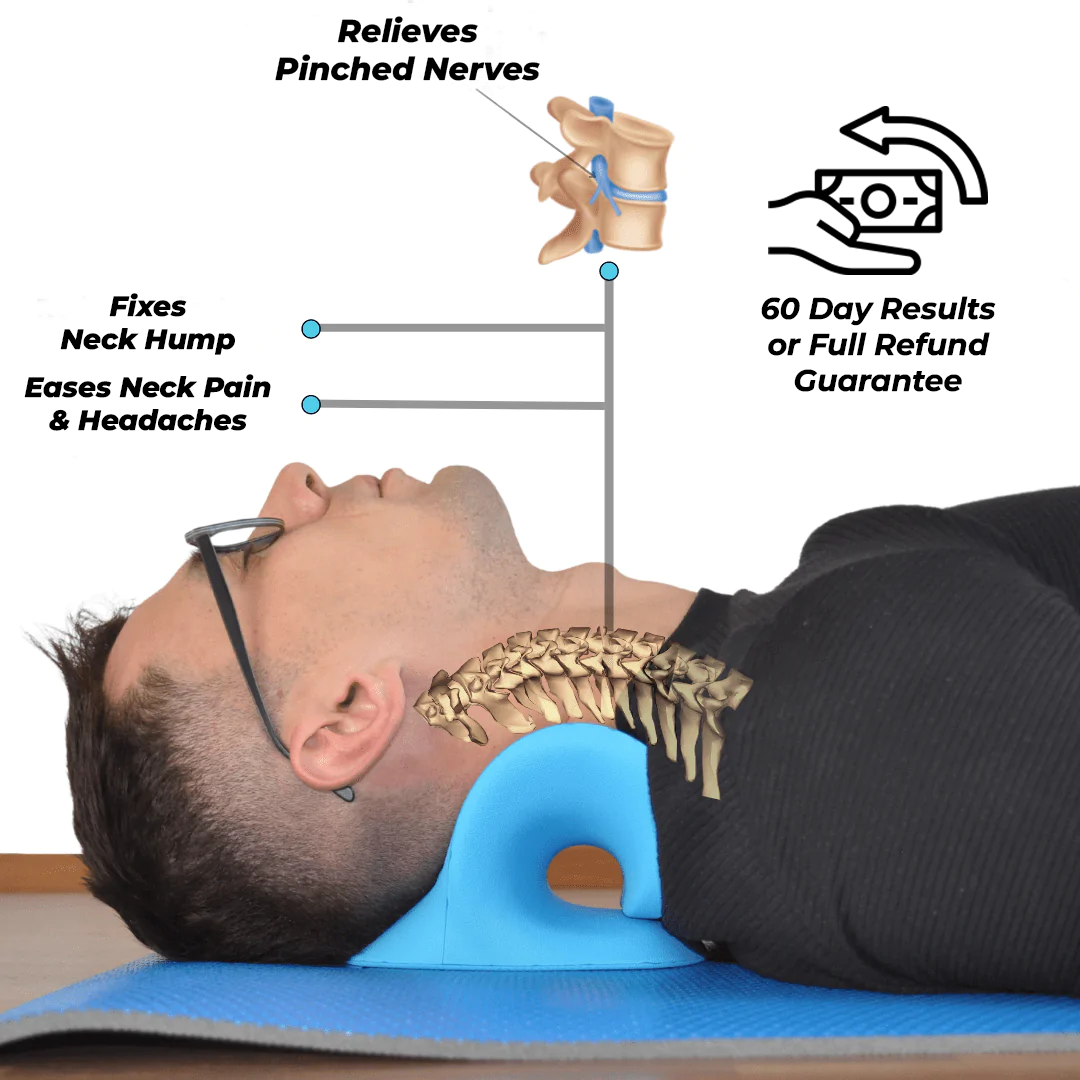Neck Cloud: Ergonomic Layout for Optimum Convenience and Pain Reduction
Neck Cloud: Ergonomic Layout for Optimum Convenience and Pain Reduction
Blog Article
The Influence of Anxiety on Neck Discomfort: Methods for Lowering Tension and Pain
In today's fast-paced globe, it's clear that anxiety has actually ended up being a widespread consider the beginning and worsening of neck pain. The complex partnership between anxiety and muscular tissue tension commonly leaves individuals seeking remedy for the discomfort that takes place. By discovering targeted strategies focused on minimizing stress and promoting relaxation, one can begin to attend to the origin of neck pain and work in the direction of an extra well balanced state of well-being. Join us on a trip to unwind the influence of tension on neck discomfort and find effective ways to alleviate discomfort and improve general lifestyle.
Understanding Stress-Related Neck Pain
Neck discomfort is a common complaint that can frequently be attributed to tension. Stress-related neck pain can materialize as tension, stiffness, or discomfort in the neck and shoulder area. The connection in between stress and anxiety and neck discomfort exists in the body's physical action to anxiety, which can lead to muscle mass tension and tightness in the neck muscles. Persistent tension can lead to relentless neck discomfort and worsen current conditions like cervical spondylosis or muscular tissue stress.

Identifying Common Tension Locations
Frequently experienced by people under stress, tension locations in the body can offer beneficial insights right into the physical manifestations of mental pressure. One common stress location is the neck, where stress usually manifests physically. Stress frustrations, stiff neck muscle mass, and limited series of movement prevail symptoms of stress-related neck tension. The shoulders are one more usual location where tension builds up. Anxiety can create the muscles in the shoulders to tighten, causing pain and discomfort. Additionally, the upper back is susceptible to stress accumulation, specifically in individuals who experience chronic anxiety. Poor pose and long term resting can exacerbate tension in this field. The jaw is also a typical place for stress-related tension, as lots of individuals squeeze their jaw or grind their teeth when emphasized. Being mindful of these common tension areas can help individuals recognize the physical signs of tension and take steps to address them before they escalate into chronic pain or discomfort.
Carrying Out Relaxation Techniques
Relaxation strategies are valuable tools for minimizing neck discomfort caused by anxiety. In addition, tasks like yoga and tai chi integrate both physical motion and leisure, making them reliable practices for decreasing anxiety and neck discomfort. By incorporating these relaxation methods into your day-to-day regimen, you can aid manage stress degrees, lower tension in the neck, and alleviate discomfort connected with stress-induced neck discomfort.
Including Self-Care Practices
Incorporating self-care practices is vital for preserving total health and handling stress-related neck discomfort properly. Taking part in normal physical activity, such as mild extending workouts or yoga exercise, can aid relieve stress in the neck and shoulders. Exercising great pose throughout the day and taking regular breaks from extended sitting or screen time can also avoid strain on the neck muscles.
Furthermore, prioritizing adequate rest and developing a regular sleep routine can contribute considerably to decreasing tension levels and promoting leisure. Producing a soothing bedtime routine, such as reading a publication or taking a cozy bath, can help prepare the body and mind for relaxed rest. In addition, keeping a balanced diet rich in nutrients and remaining moistened can sustain general health and wellness and minimize inflammation that might worsen neck pain.
Including mindfulness methods, such as deep breathing exercises or reflection, can assist take care of stress and anxiety and promote relaxation. Requiring time for oneself, engaging in leisure activities, and establishing boundaries to shield personal time are additionally essential aspects of self-care that can add More about the author to decreasing stress and anxiety and relieving neck pain.
Looking For Expert Aid
Exactly how can people successfully address consistent neck discomfort that is affecting their every day life and wellness? Seeking expert help can be a crucial action in managing and easing neck pain. Consulting with medical care professionals such as chiropractics physician, physical therapists, or orthopedic experts can provide important understandings and personalized treatment strategies. These professionals can carry out complete analyses to diagnose the underlying sources of neck discomfort and advise appropriate interventions.
Chiropractic practitioners concentrate on back adjustment strategies to improve alignment and decrease tension in the neck area. Physical specialists supply targeted stretches and workouts to reinforce muscles, improve flexibility, and improve general neck function. Orthopedic experts can supply sophisticated clinical treatments such as injections or medical alternatives for extreme cases of neck pain.
Verdict

Stress-related neck pain can manifest as tension, stiffness, or discomfort in the neck and shoulder area. The connection between stress and neck pain exists in the body's physical feedback to stress, which can result in muscle stress and rigidity in the neck muscular tissues. Stress frustrations, stiff neck muscles, go to this site and limited array of activity are usual signs and symptoms of stress-related neck stress. By integrating these leisure methods into your daily regimen, you can aid take care of anxiety levels, reduce tension in the neck, and alleviate pain connected with stress-induced neck pain.

Report this page